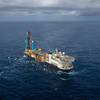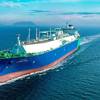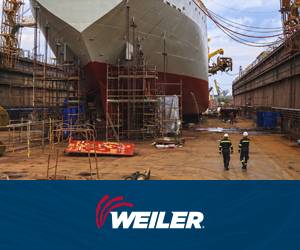ABS Updates Guidance on LNG Bunkering
ABS has updated its guidance on LNG Bunkering in North America to support the transport sector's increasingly rapid transition to the use of cleaner fuels.
The second edition of ABS' Bunkering of Liquefied Natural Gas-fueled Marine Vessels in North America was released today, offering new market-leading advice to shipowners and operators who may be looking to develop bunkering infrastructure in response to new emissions regulations and showcase their environmental stewardship.
"As the demand for LNG-fueled vessels and the supporting infrastructure continues to grow, ABS continues to offer the industries we serve with up-to-date information derived from the latest projects and our intimate knowledge of the evolving regulatory landscape in North America," said Patrick Janssens, ABS' Vice President, Global Gas Solutions. "Both the marine and offshore industries are committed to using cleaner fuels, and we are committed to supporting our clients and members with that technical transition."
The first edition of the report was published in March 2014. Major updates in the second edition include important lessons learned from first adopters of LNG-fueled vessels and LNG bunkering projects, a 'project roadmap' guide of the associated regulatory, stakeholder and technical issues and an in depth port directory highlighting ongoing projects and local development processes.
Since ABS established its Global Gas Solutions team in August 2013, it has been awarded several precedent-setting contracts that have reaffirmed its class leadership in the gas sector. ABS has won the classification contracts for the world's first LNG-fueled containership, North America's first LNG barge, the world's first very large ethane carrier, the world's first compressed natural gas carrier and the first dual-fueled OSV built in North America.
"This report captures our diverse practical knowledge in the gas sector and many of the lessons learned since our first edition a year ago. It is a valuable tool to those companies considering using or supplying LNG for fuel," Roy Bleiberg, Director of Global Gas Solutions at ABS, said. "While it may not be suitable for everyone, LNG should be considered as a fuel source by all industry. It's not only suitable for companies interested in the potential economic benefits or those whose ships will be trading in emissions control areas; it is also for those companies who are keen to establish and promote their environmental stewardship."
The report is available to the public through the ABS website, www.eagle.org.












